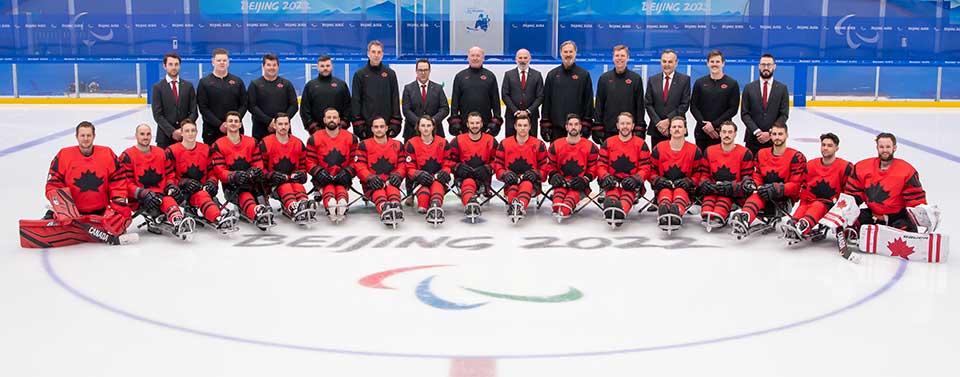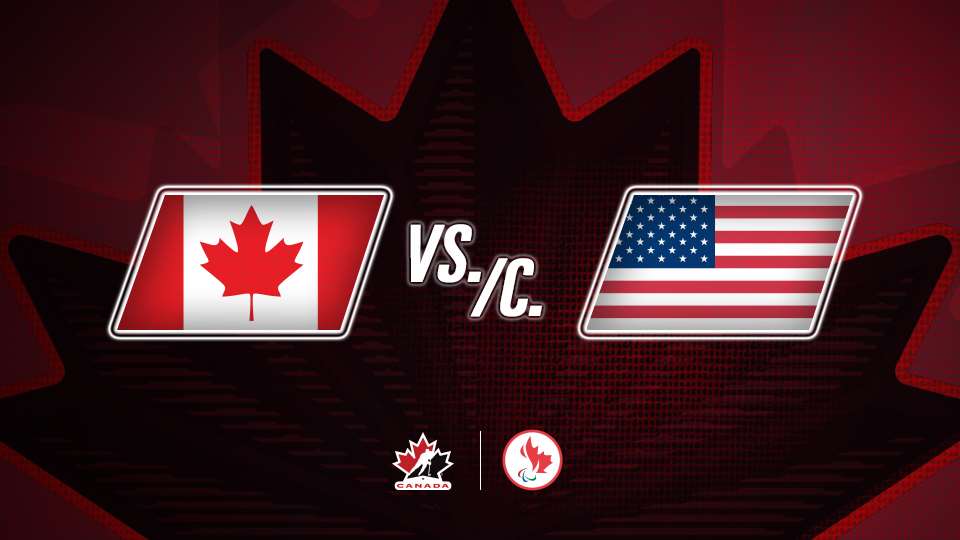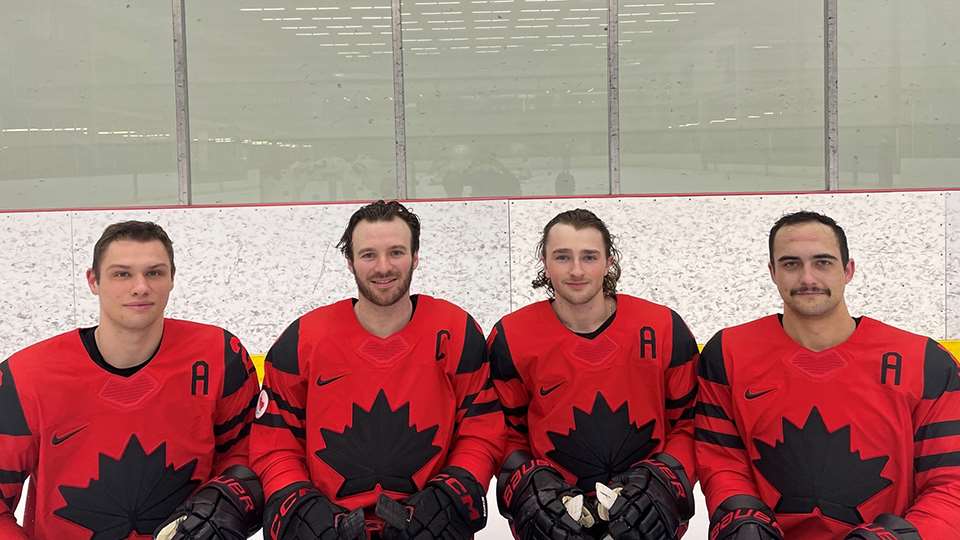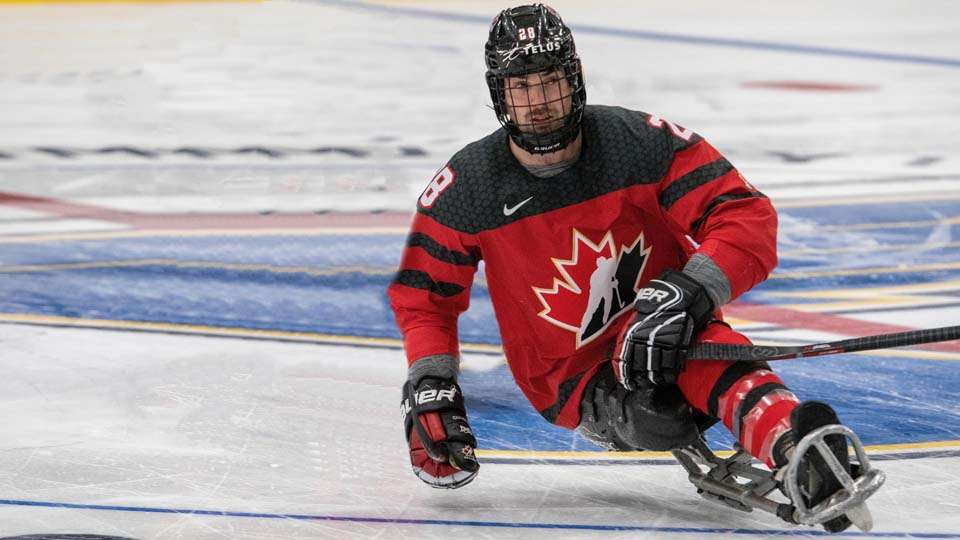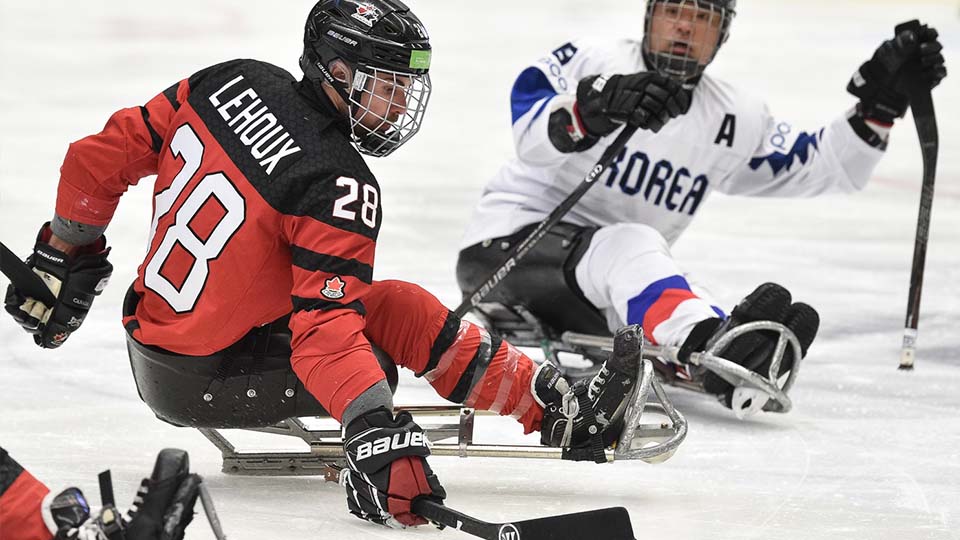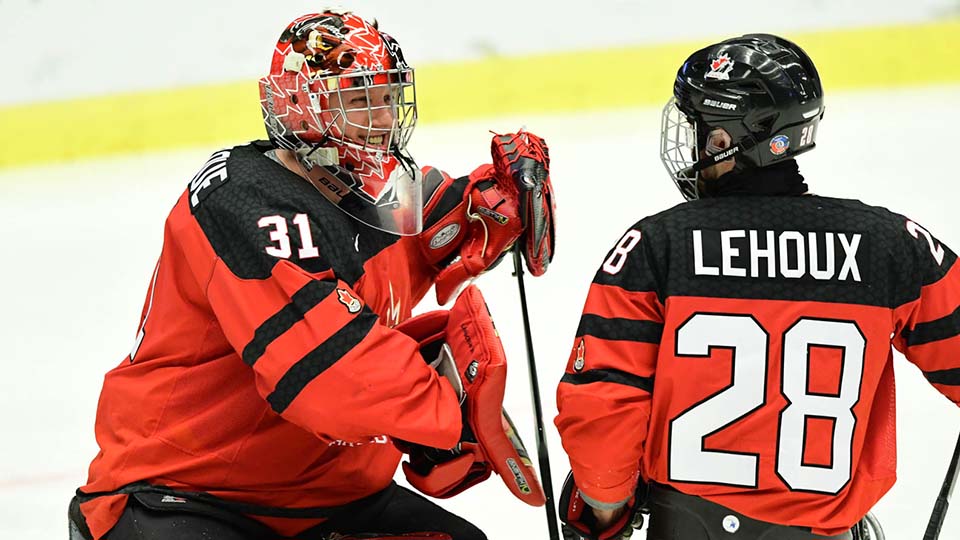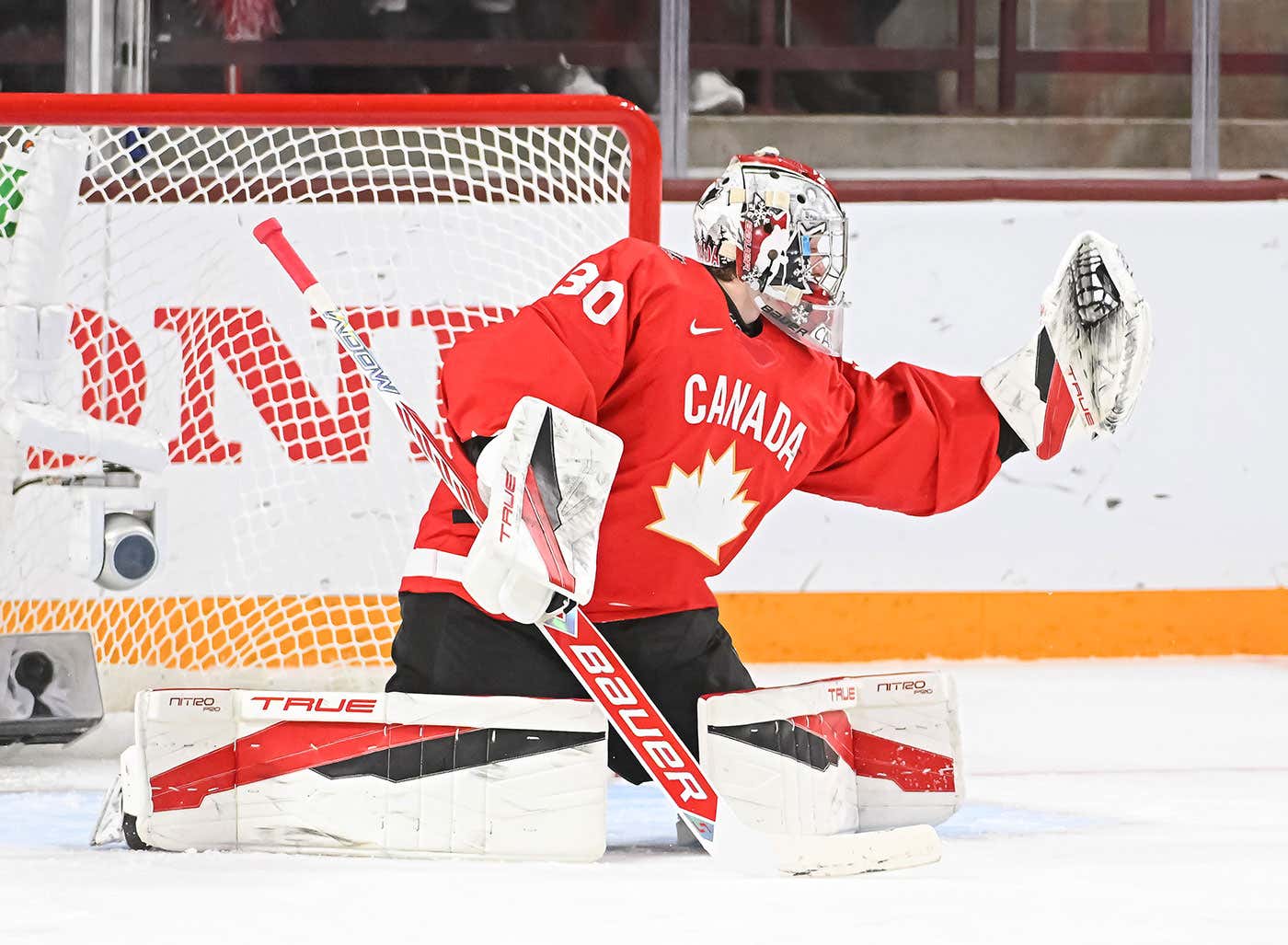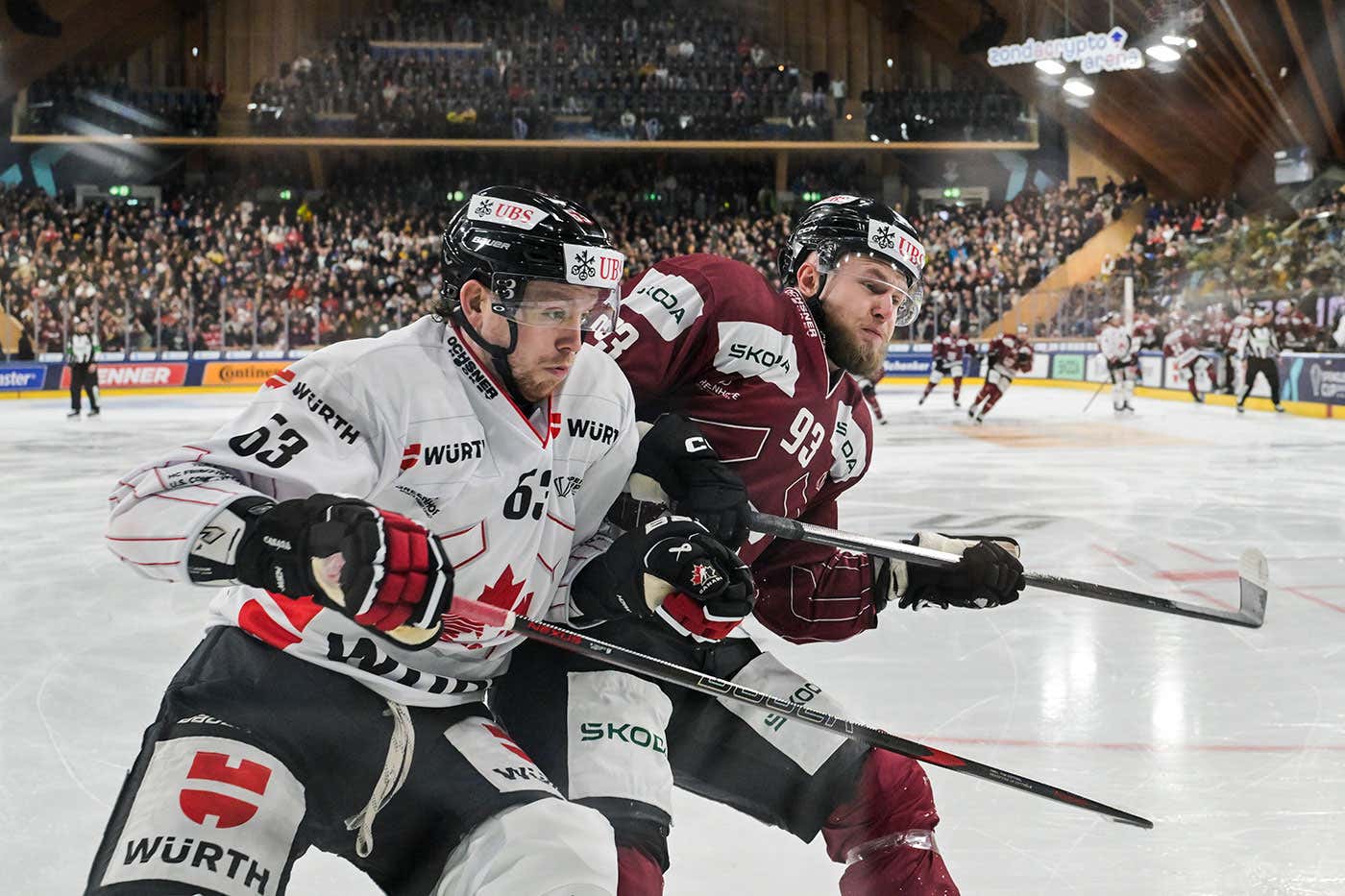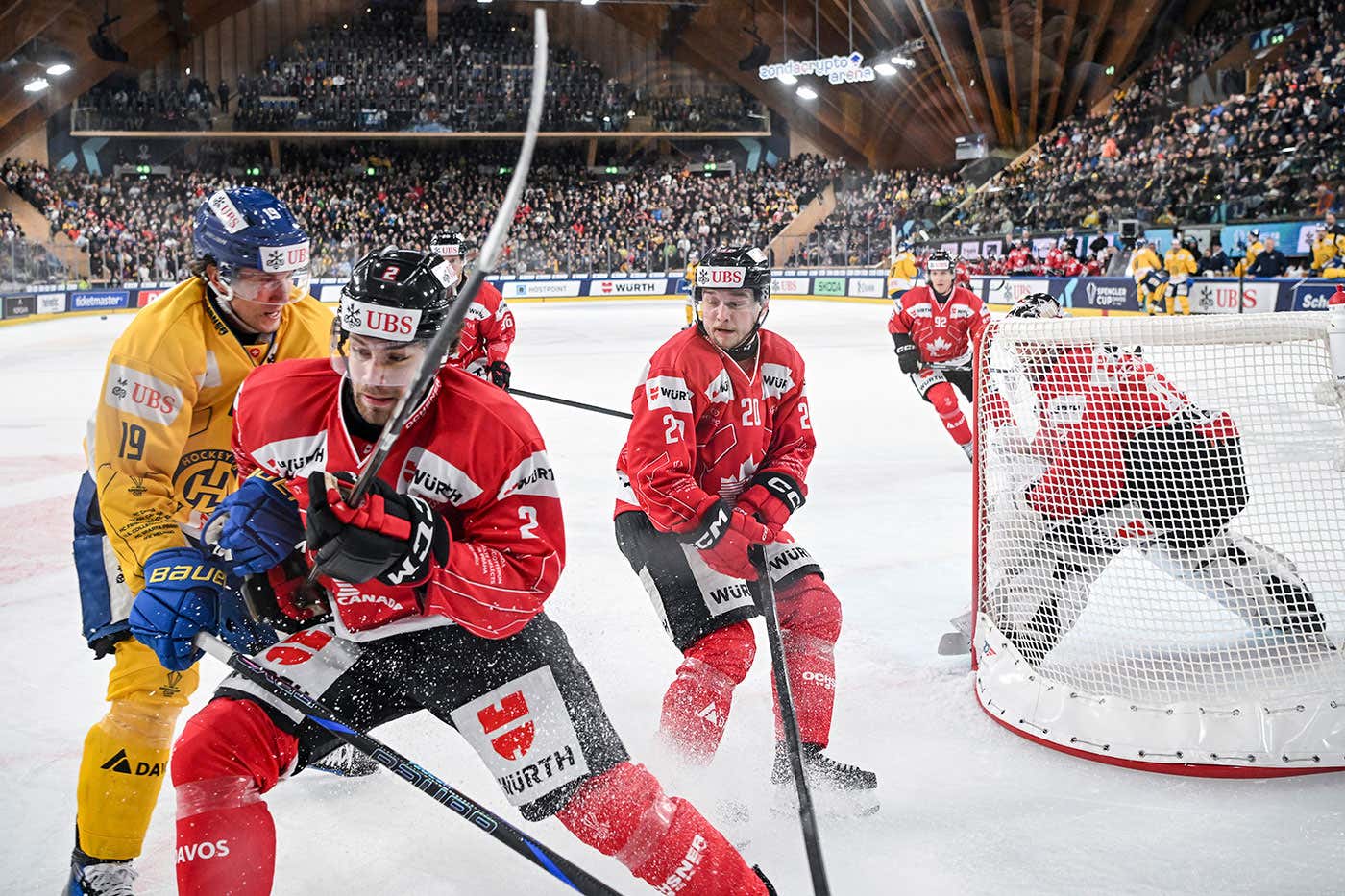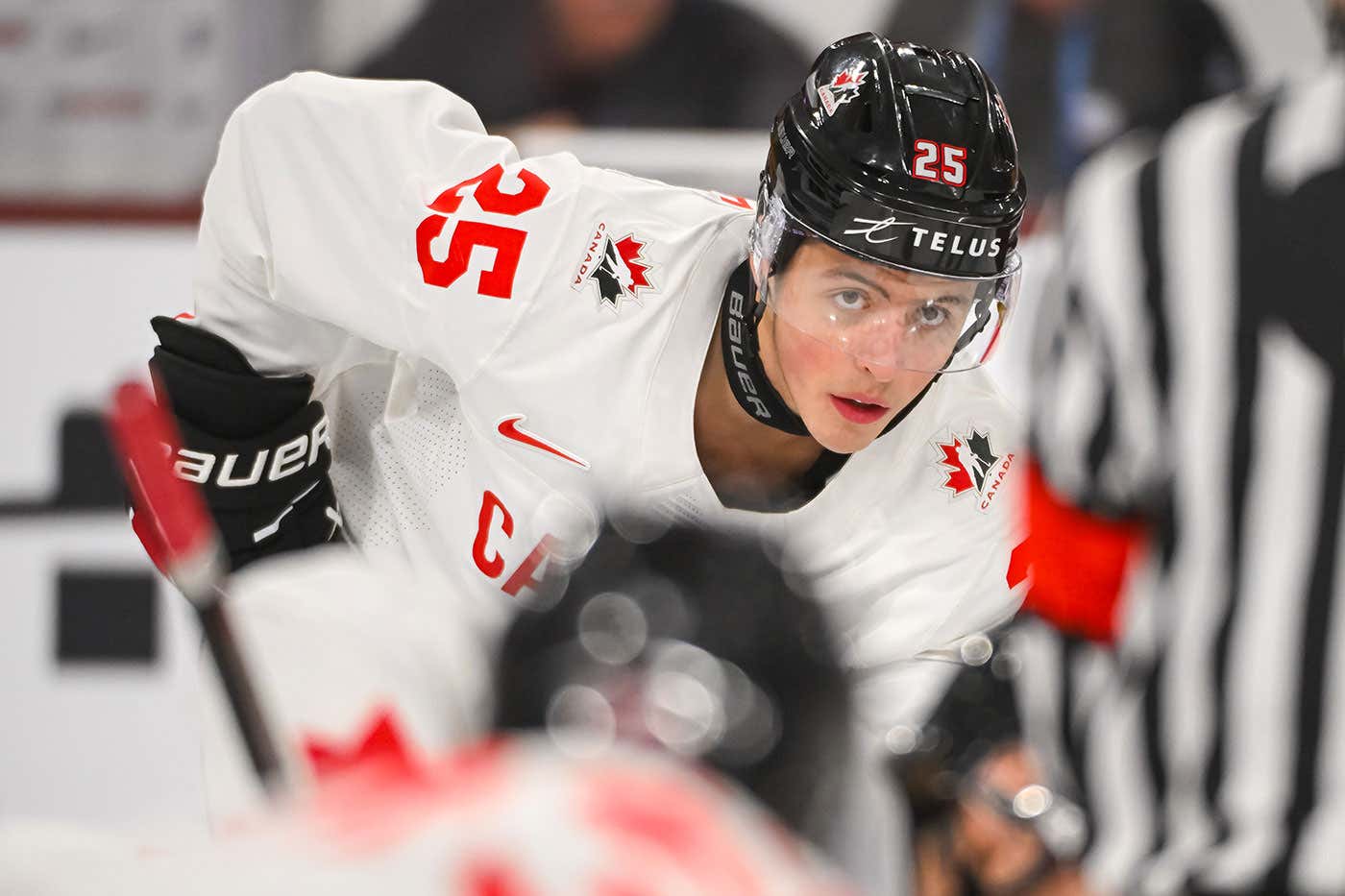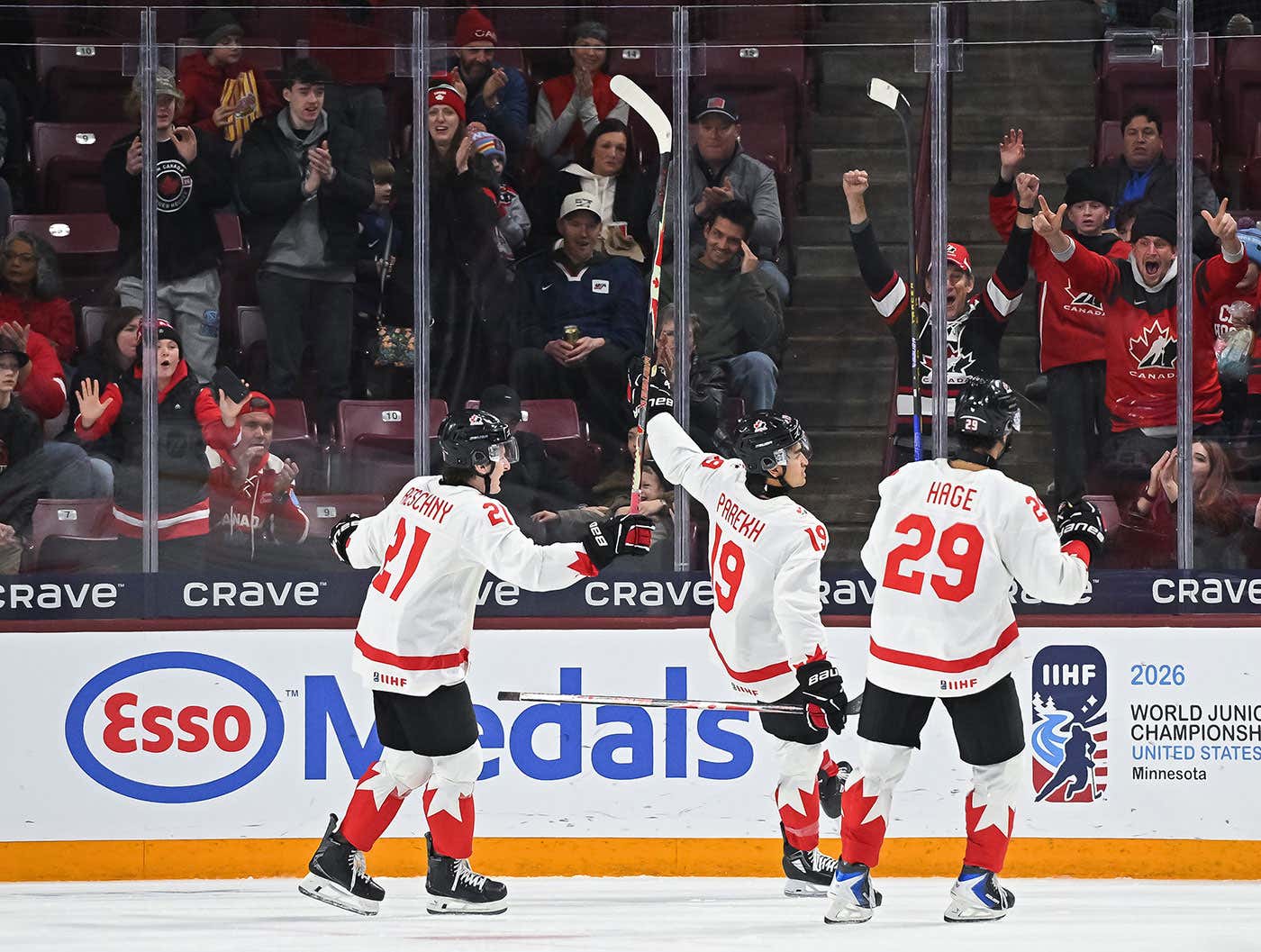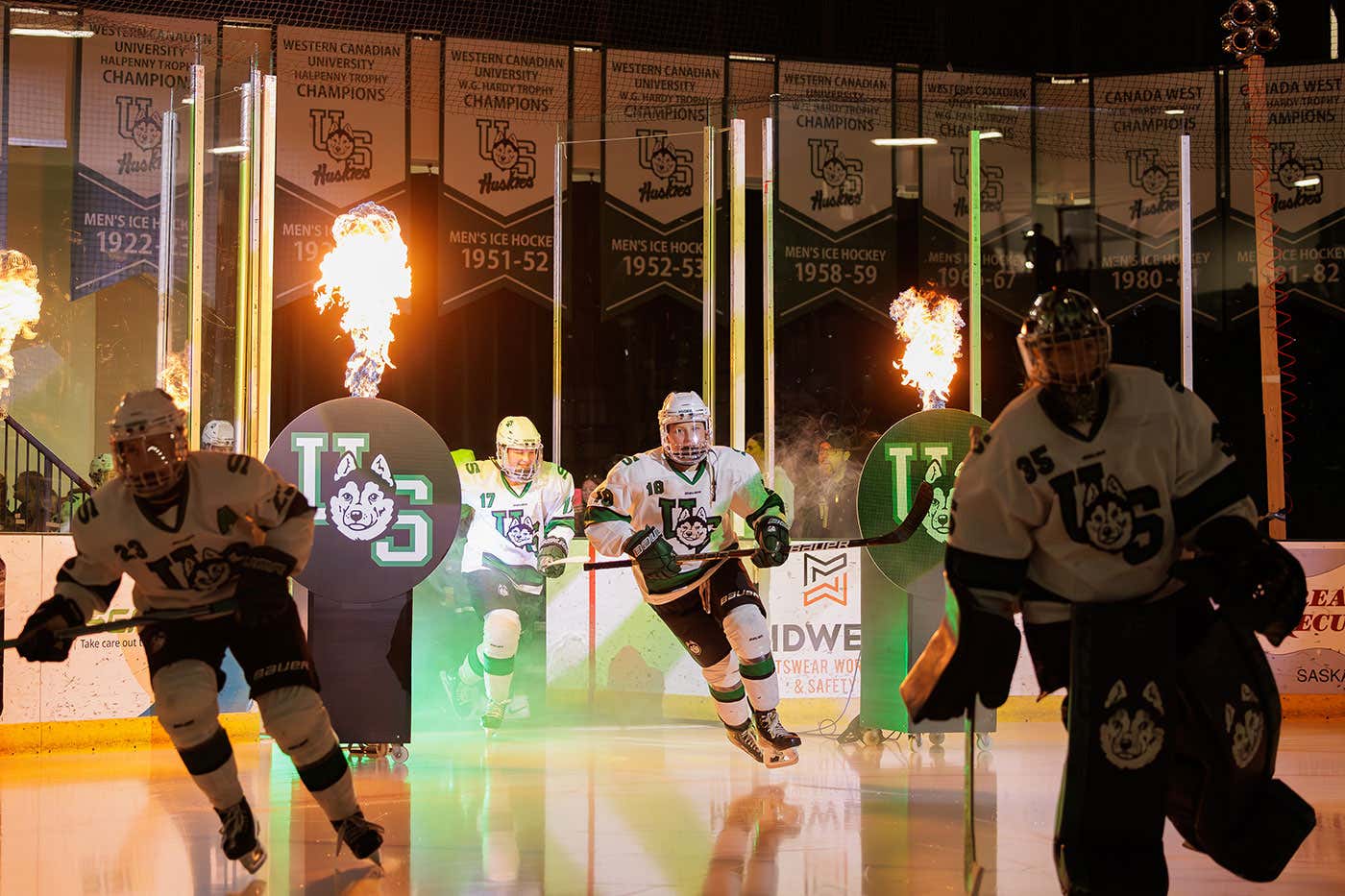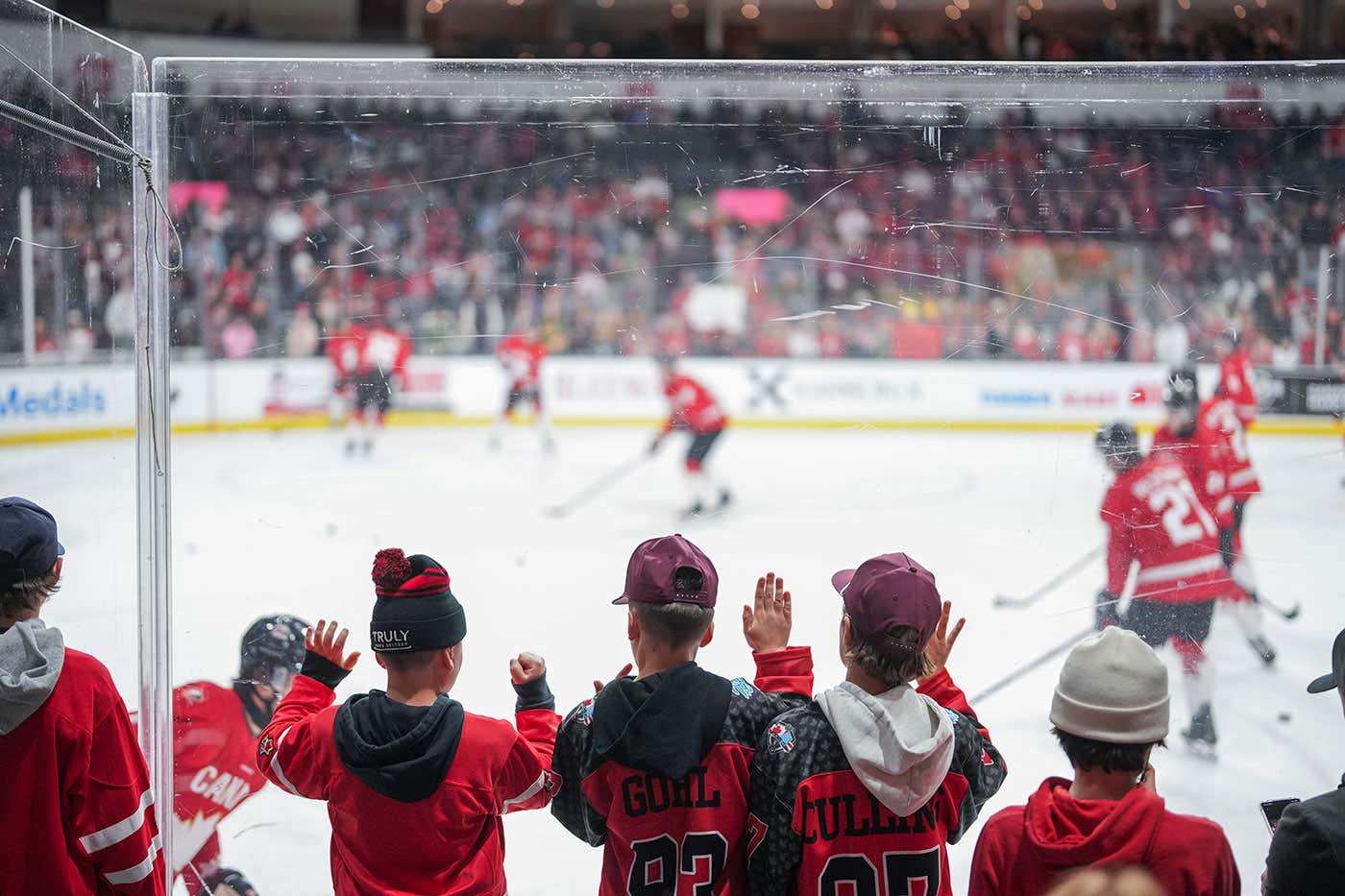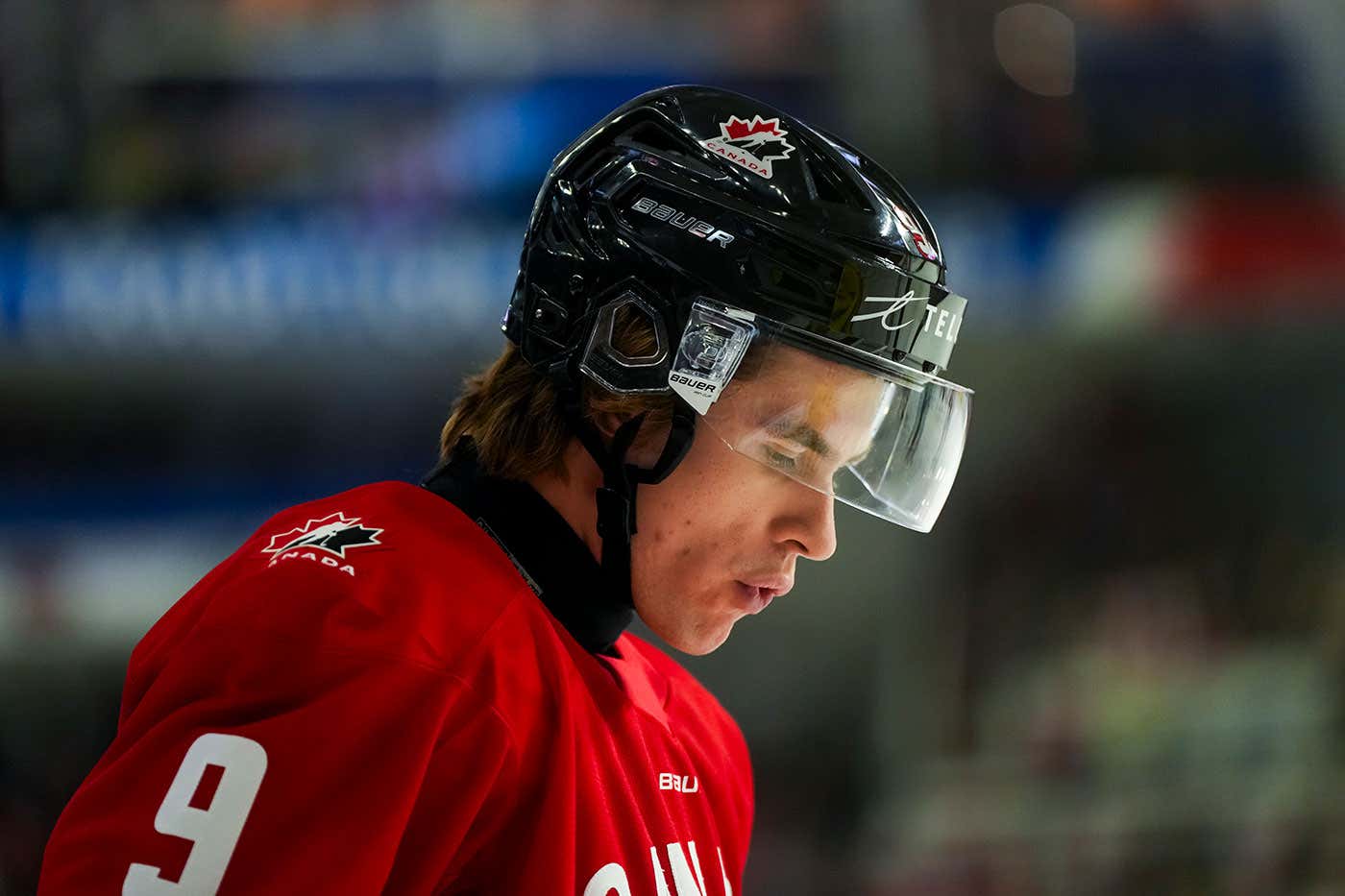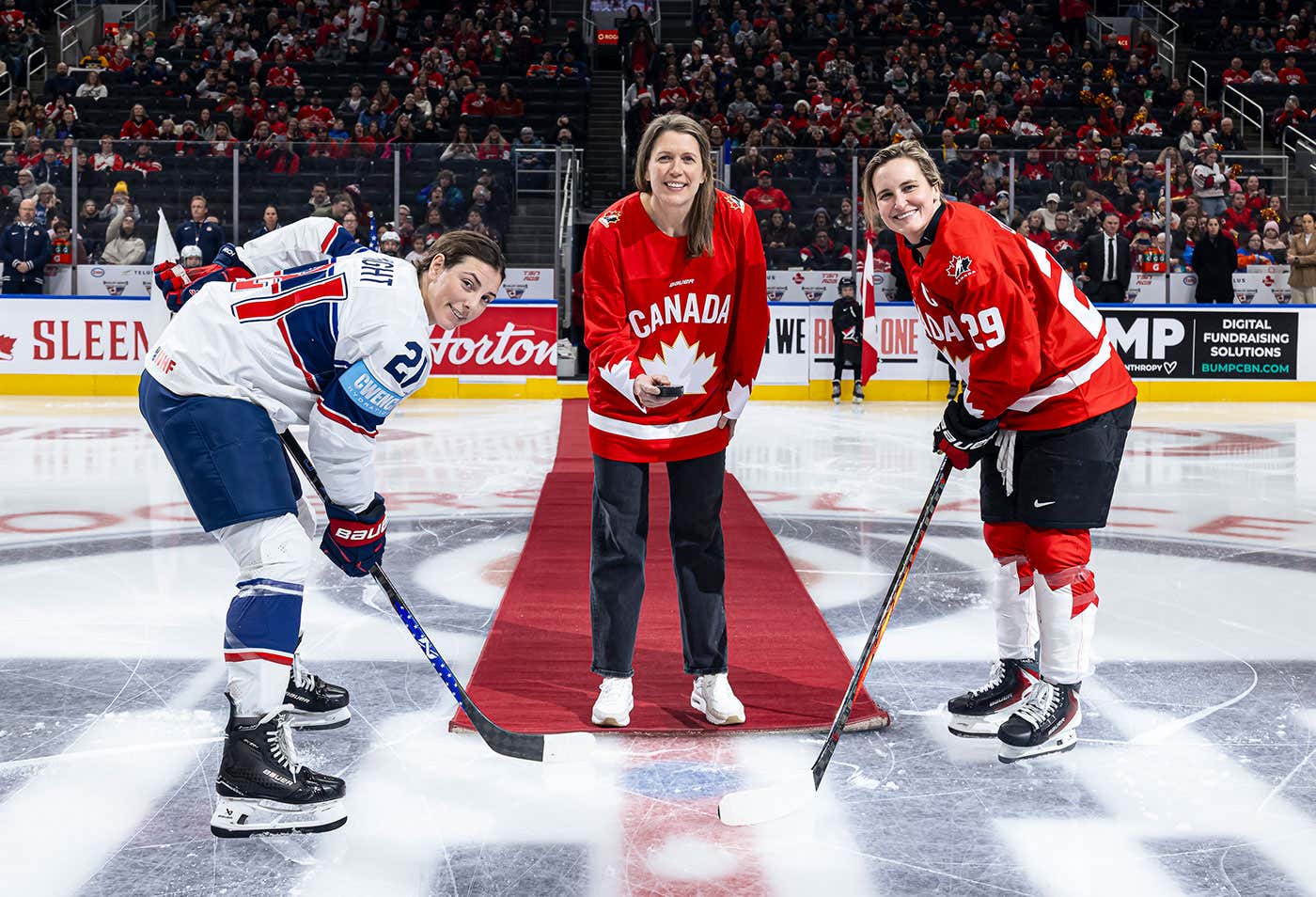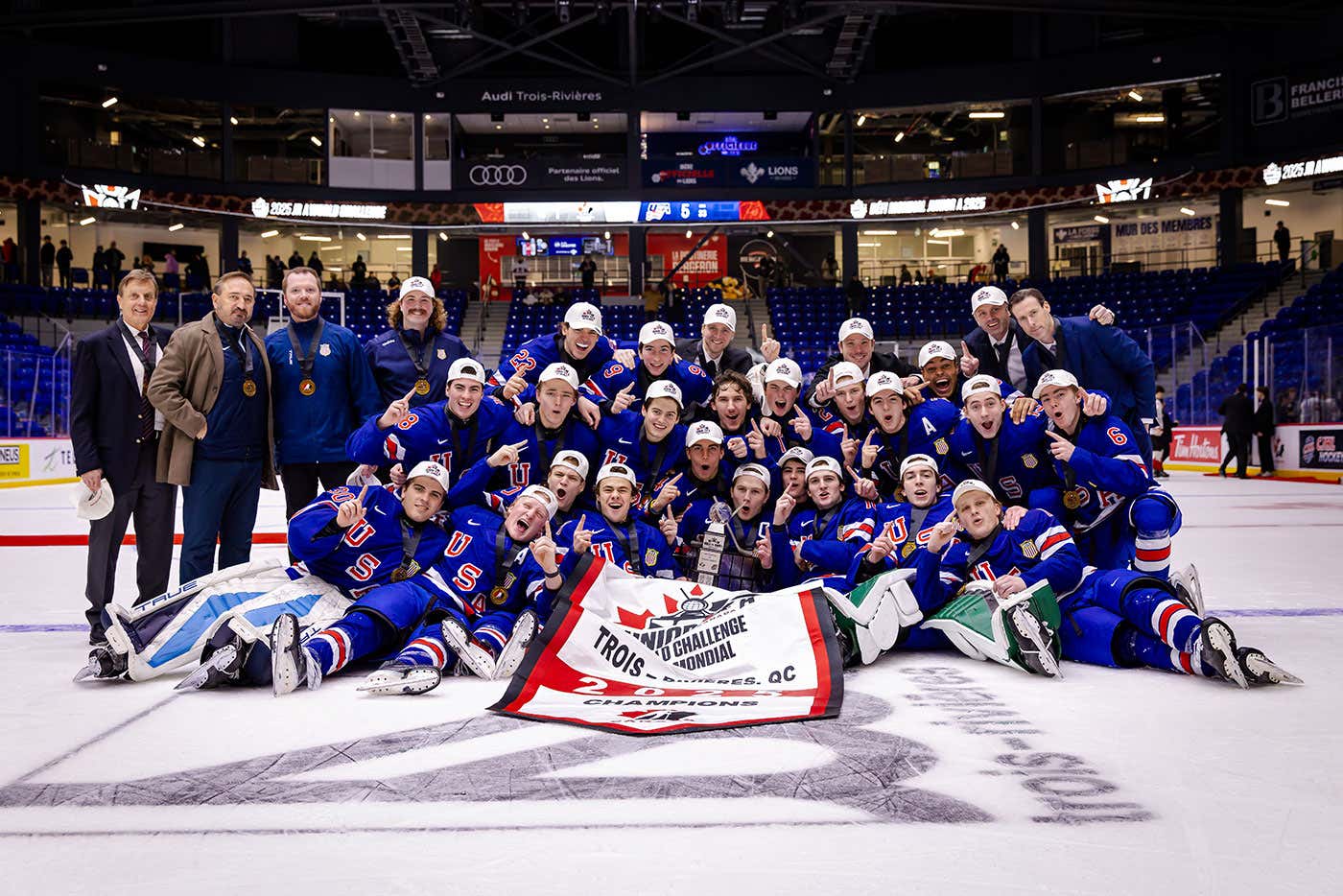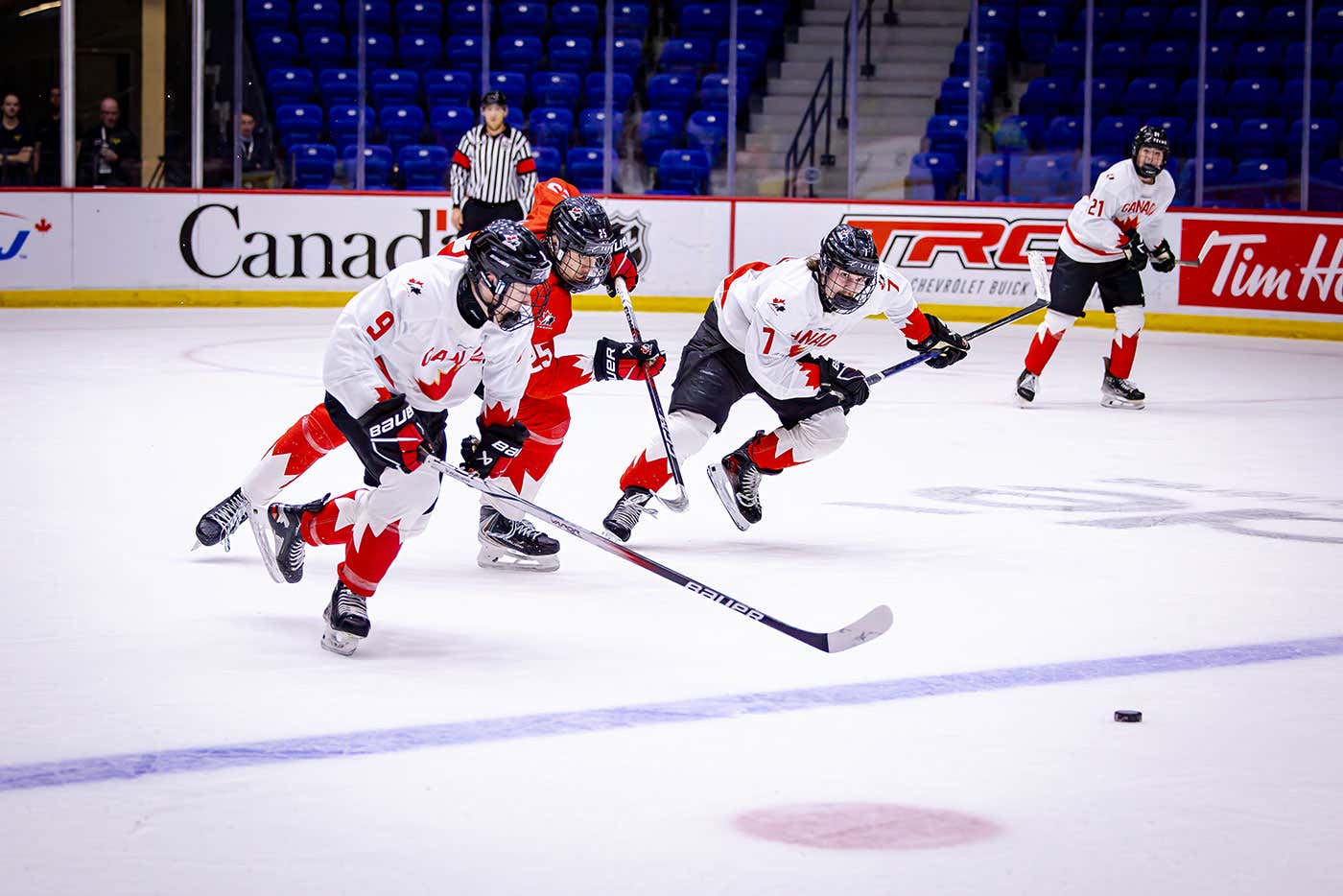
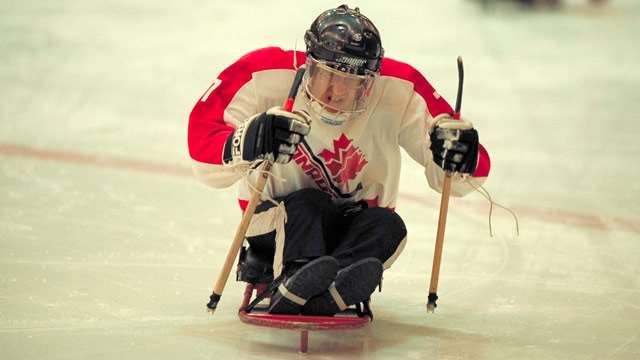
Memories of Lillehammer
20 years later, Todd Nicholson looks back at sledge hockey’s Paralympic debut

When the puck dropped to begin the 2014 Paralympic Winter Games, it marked 20 years since sledge hockey made its debut on the biggest stage in sports.
Sledge hockey first appeared on the Paralympic program in Lillehammer, Norway, in 1994, with five teams competing: Canada, Estonia, Great Britain, Norway and Sweden.
Despite the sport being new to the Games, the competitors weren’t new to one another.
In 1992, Canada had hosted the World Cup in Hull, Que., and come out victorious against some of the same teams they would see again two years later.
Todd Nicholson, a member of Canada’s National Sledge Team from 1992 to 2010, says the tournament prepared the team for the style of play they’d see in Europe. Just like today, the European teams played a more positional game – dictated by the larger ice surface they’re accustomed to – and the North American teams countered with a more physical game.
The players also met up with a few make-shift sledge teams in preparation for the Games. There were a lot of able-bodied players taking up the game as well, says Nicholson, and they provided some opposition to help the national team get Games ready.
Just getting to those Lillehammer Games proved to be a financial challenge. With no team funding back then, the players paid for expenses out of pocket. Nicholson estimates it cost him between $4,000 and $5,000 to go to Norway. It was a burden he and his teammates were willing to bear to grow their game.
“We realized where the sport was and what it was going to take to get the sport to evolve to where it is today,” he says. “For us as athletes it was an honour to be able to compete in the same venues and have our Games in the same place as where the Olympics had been held.”
The players also knew they had to show their athletic mettle.
“We understood how important this moment was,” says Nicholson. “And we needed to ensure that the sport was competitive and entertaining enough. The last thing we wanted was for anybody to feel sorry for us. We were not crippled kids or people playing a game for fun.”
Canada opened its schedule against Sweden. For Nicholson, who would go on to compete in four more Games, the memory of that first time on Paralympic ice remains. He still recalls skating around the net in warm-up and seeing his parents in the crowd. “It was easy to find them – there were only about 150 people in the stands.”
Canada would drop its first Paralympic game 2-1 to the Swedes.
A lack of knowledge about the sport and 10 a.m. start times initially deterred people from coming to the games. But as the week went on and word spread about the level of competition, the crowds got larger; Nicholson estimates by the end of the tournament up to 4,000 fans were coming out.
Among those were hundreds of local school kids. Six schools had been assigned to Canada, and the students would show up daily decked out in red and white and waving the Canadian flag. The support did not go unnoticed. “We split up into six groups and visited the schools while we were there to say thank you,” says Nicholson.
Canada would not allow a goal the rest of the way. It beat Estonia 5-0 and battled both Norway and Great Britain to scoreless draws. At the end of the round-robin, a 1-1-2 record left Canada tied with Great Britain for third place. The two countries would play for bronze.
Canada won the rematch 2-0. Sweden defeated Norway 1-0 in a shootout to capture the sport’s first Paralympic gold medal.
Even though the team expected gold going in, Nicholson says he felt proud having the bronze put around his neck. He also says it’s probably what the team deserved.
“You hope when you come home that the best team won,” he says. “I feel I came home from those Games realizing and understanding that the best team did win. We realized what we had accomplished and were able to follow that up as the years progressed.”
Nicholson would help Canada win silver in 1998 and captain the team to gold in 2006.
He’s now attending his sixth Paralympic Games in Sochi, but his first off the ice. In his current role as the chair of the International Paralympic Committee’s Athlete Council, Nicholson sat in the executive box at the Opening Ceremonies. Just a few seats away sat Vladimir Putin.
Despite no longer wearing the Canadian jersey, Nicholson was still waving the flag, jokingly apologizing to the Russian president about Canada already taking two hockey gold medals home from his country. “I apologized ahead of time that if the sledge team also wins then we know where hockey belongs,” Nicholson laughs. “His comment to that was we’ll have to see, and if that does happen I can’t guarantee you’re going to get out.”
Nicholson could never have imaged where he or the sport would find themselves in 2014. Both the number of athletes playing sledge hockey and the number of media members covering them has grown substantially. And advances in equipment have brought even more skill to the ice.
Looking back at 20 years of sledge hockey in the Paralympic Games, Nicholson says he’s grateful the sport was welcomed into the program, allowing not only the players the chance to live out their competitive dreams but also fans the opportunity to watch these high-performance athletes compete.
For more information: |


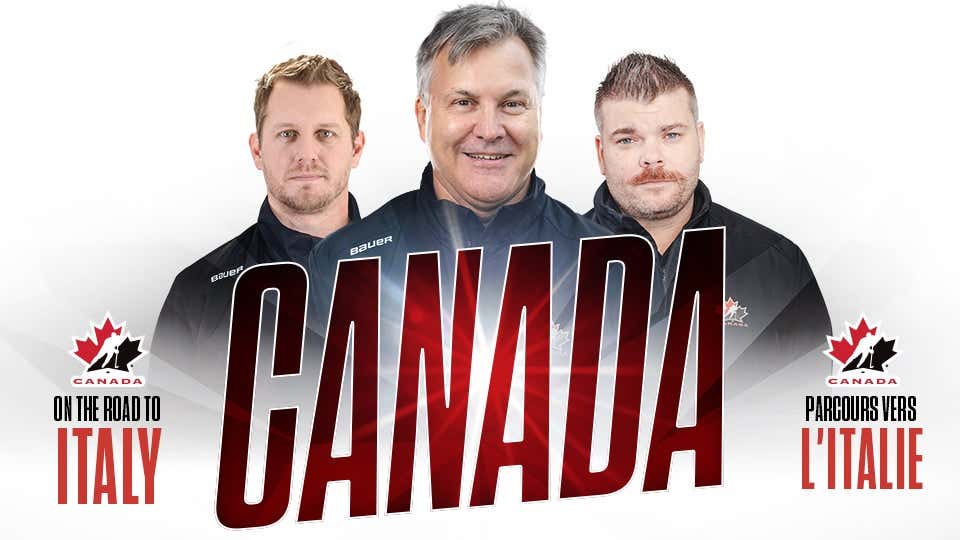
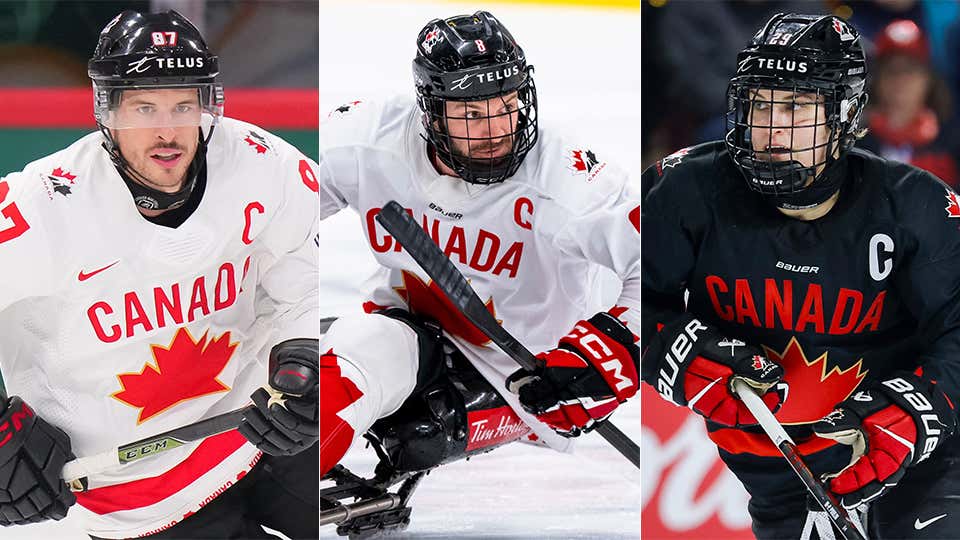
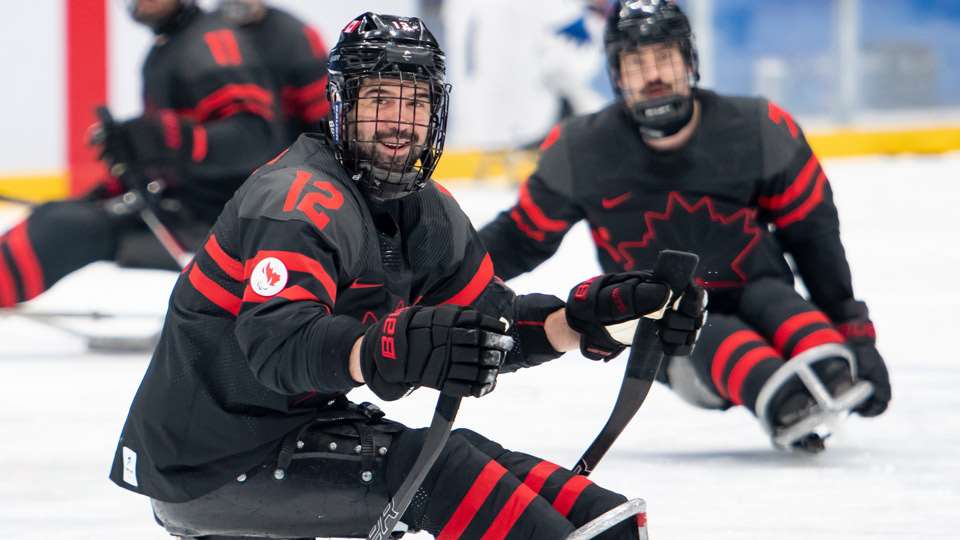
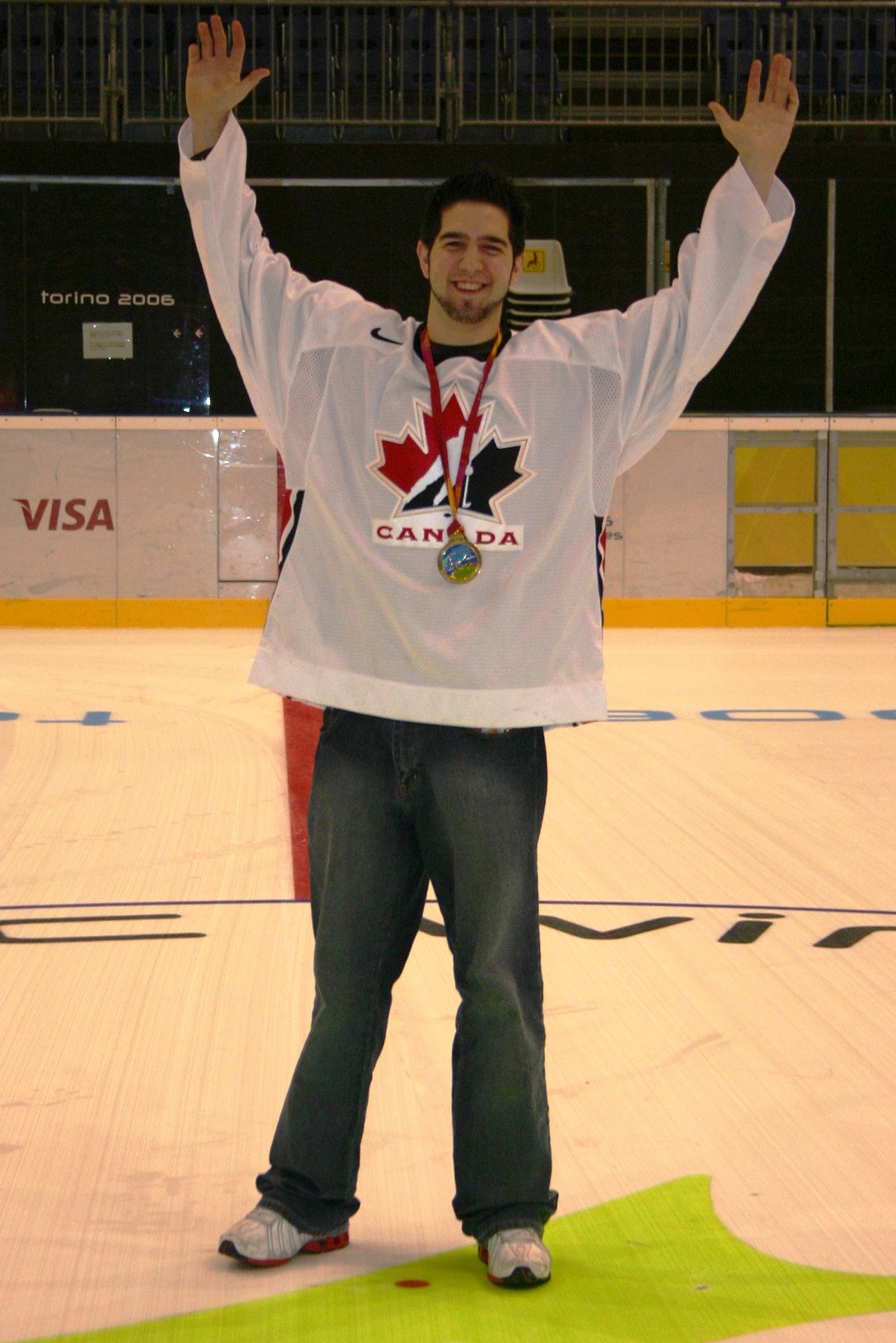 Beijing 2022 ties a bow on an accomplished career with Team Canada.
Westlake joined the para hockey program in 2003 and has played as a
goaltender, a defenceman and a forward. He won gold at his first Paralympic
Games in 2006 and has since won two more Paralympic medals: bronze in 2014
and silver in 2018.
Beijing 2022 ties a bow on an accomplished career with Team Canada.
Westlake joined the para hockey program in 2003 and has played as a
goaltender, a defenceman and a forward. He won gold at his first Paralympic
Games in 2006 and has since won two more Paralympic medals: bronze in 2014
and silver in 2018.
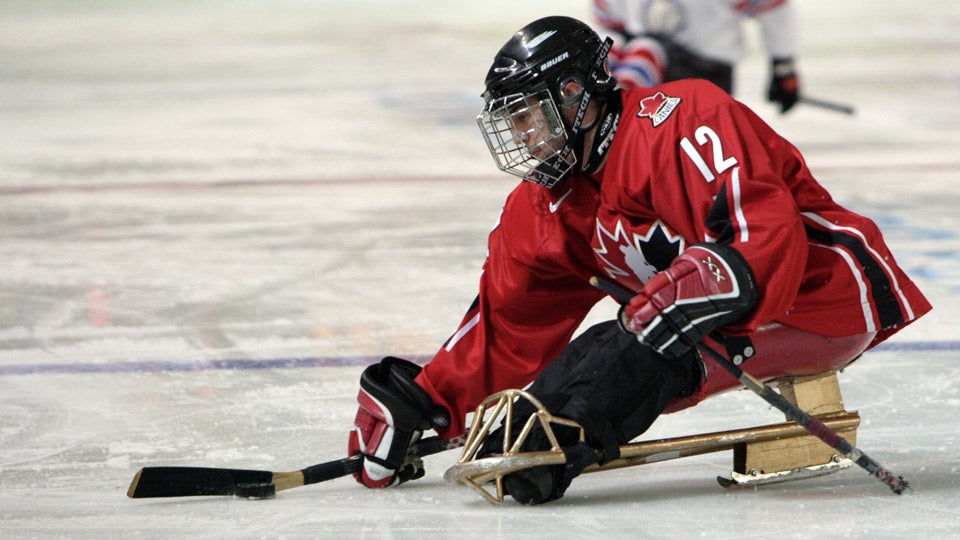
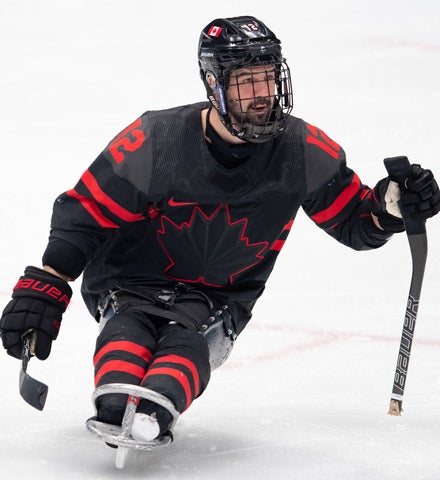


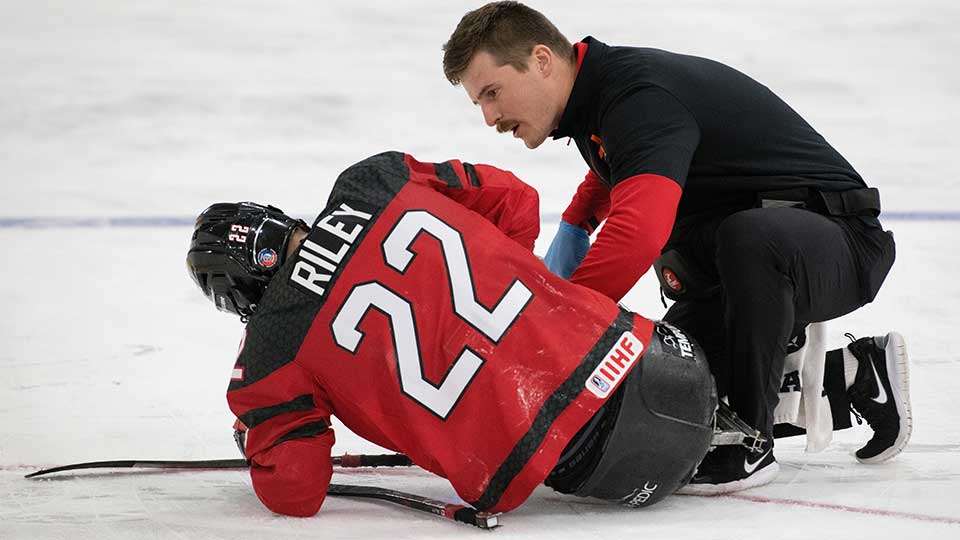
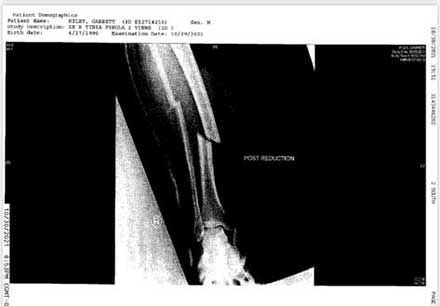 Riley is no stranger to hospitals. He was diagnosed with osteosarcoma at 15 and had his left knee replaced with a prosthetic joint to try and save the rest of his leg. Seven years later, an infection took hold and Riley became septic, leading to an above-knee amputation when he was 22. Since that operation in 2017, he has dealt with issues surrounding his residual limb, including extreme pain requiring a handful of additional surgeries.
Riley is no stranger to hospitals. He was diagnosed with osteosarcoma at 15 and had his left knee replaced with a prosthetic joint to try and save the rest of his leg. Seven years later, an infection took hold and Riley became septic, leading to an above-knee amputation when he was 22. Since that operation in 2017, he has dealt with issues surrounding his residual limb, including extreme pain requiring a handful of additional surgeries.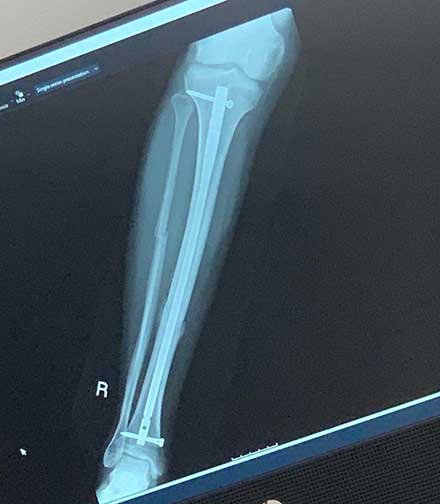 Everyone was surprised when the ice was ready for puck drop on Oct. 29, and the excitement was palpable. Fans started arriving, including a family of four originally from north of the border, all dressed proudly in the red and white. Riley was anxious to get back on the ice wearing the Maple Leaf, but all the nerves drifted away in warmup.
Everyone was surprised when the ice was ready for puck drop on Oct. 29, and the excitement was palpable. Fans started arriving, including a family of four originally from north of the border, all dressed proudly in the red and white. Riley was anxious to get back on the ice wearing the Maple Leaf, but all the nerves drifted away in warmup.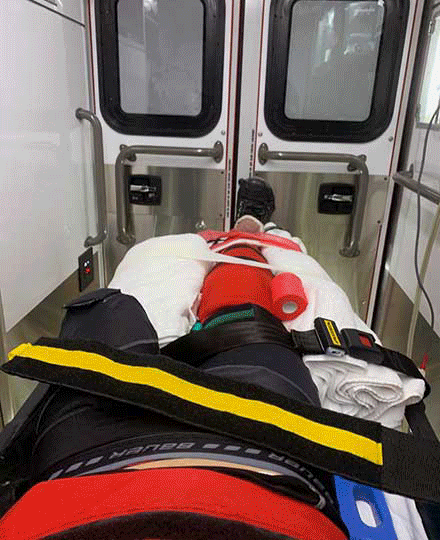 Diklich rode with him in the ambulance to the hospital and spoke to the St. Louis care team. As an emergency room physician himself, Diklich has seen his fair share of bad breaks. He was there when they tried to remove Riley’s equipment but had to sedate the forward to do so. And once it was off, it was evident why. Riley had a compound fracture; the tibia had broken through the skin. A difficult injury for anyone to deal with, let someone with only one leg.
Diklich rode with him in the ambulance to the hospital and spoke to the St. Louis care team. As an emergency room physician himself, Diklich has seen his fair share of bad breaks. He was there when they tried to remove Riley’s equipment but had to sedate the forward to do so. And once it was off, it was evident why. Riley had a compound fracture; the tibia had broken through the skin. A difficult injury for anyone to deal with, let someone with only one leg.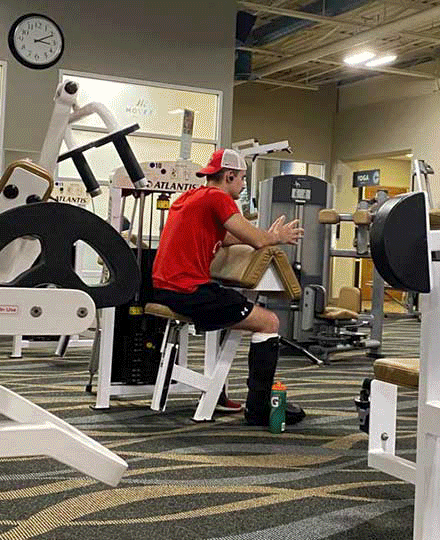 It started off small enough, but for Riley even that brought back memories from his teenage cancer and the infection that ultimately cost him his left leg. It was a tense two weeks, with everyone in Riley’s life watching and waiting to see if he could fight it off. Suddenly, returning to hockey wasn’t the priority anymore. Saving his one remaining leg was all that mattered.
It started off small enough, but for Riley even that brought back memories from his teenage cancer and the infection that ultimately cost him his left leg. It was a tense two weeks, with everyone in Riley’s life watching and waiting to see if he could fight it off. Suddenly, returning to hockey wasn’t the priority anymore. Saving his one remaining leg was all that mattered.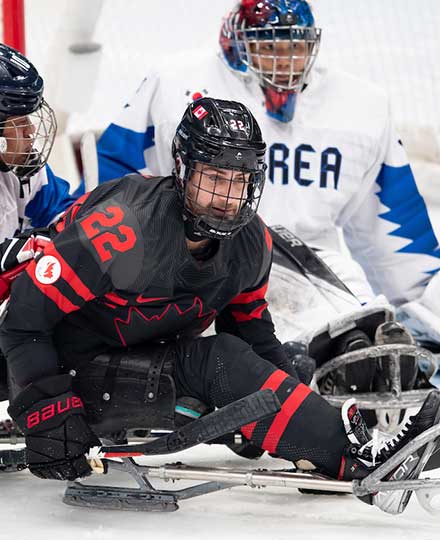 Riley quickly had the same realization; those two months recovering had played havoc with his fitness and timing. If he wanted a shot at the Paralympic roster, he was going to need more ice time, more specific training and more coaching, but options were limited at home in Ontario. Babey suggested Riley come to Calgary early in January to work with him and the Alberta-based players, but also to have focused sessions with Yu and the support staff.
Riley quickly had the same realization; those two months recovering had played havoc with his fitness and timing. If he wanted a shot at the Paralympic roster, he was going to need more ice time, more specific training and more coaching, but options were limited at home in Ontario. Babey suggested Riley come to Calgary early in January to work with him and the Alberta-based players, but also to have focused sessions with Yu and the support staff.